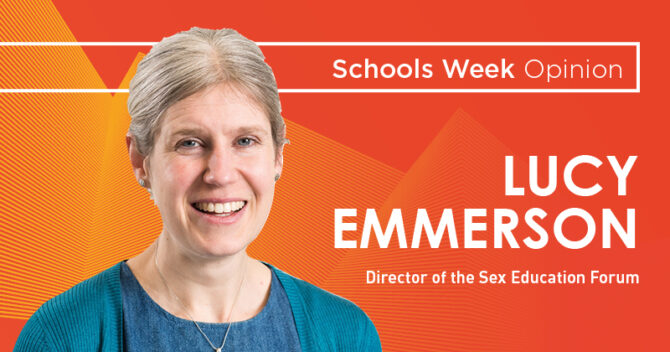Draft statutory guidance on the new relationships and sex education curriculum has finally been published.
The 38-page document sets out the things primary and secondary schools will have to teach from September 2020, but also includes some instructions on how the new curriculum should be administered.
Here’s what the guidance says schools should do…
1. Draw up a written policy
By September 2020, all schools must have in place a written policy for relationships education and RSE.
This must be drawn up and reviewed in consultation with parents, and must “reflect the community” schools serve.
The policy should define relationships education (for primary schools) and relationships and sex education (for secondaries), and set out the subject content, how it is taught and who is responsible for teaching it.
It should also describe how the subject is monitored and evaluated, and include information about a parent’s right to request that their child be excused.
2. Take pupils’ faith into account
All schools must take the religious background of all pupils into account when planning teaching, the guidance says.
This is done in order to ensure that “sensitive topics that need to be taught are appropriately handled”.
Schools must ensure they comply with the relevant provisions of the Equality Act 2010, under which religion or belief are “protected characteristics”.
Faith schools may teach their own distinctive perspective on relationships and conduct “balanced debate” about issues that are seen as contentious.
However, teaching in all schools should reflect the law as it applies to relationships, so that young people clearly understand what the law allows and does not allow, and the wider legal implications of decisions they may make.

3. Make RSE accessible
Making RSE and health education accessible for all pupils is “particularly important” when planning teaching for pupils with special educational needs and disabilities (SEND).
According to the guidance, high-quality teaching that is “differentiated and personalised” will be the starting point to ensure accessibility.
Schools should also be “mindful of the preparing for adulthood outcomes, as set out in the SEND code of practice, when preparing these subjects for those with SEND”.
They should also be aware that some pupils are more vulnerable to exploitation, bullying and other issues due to the nature of their SEND, and that relationships education “can also be a particular priority for some pupils, for example, some with social, emotional and mental health needs or learning disabilities”.
4. Make LGBT content ‘integral’
While it’s up to schools to determine how they address LGBT-specific content, the government recommends it is “integral throughout the programmes of study”.
Schools should ensure that their teaching on the subject is “sensitive, age-appropriate and delivered with reference to the law”.
5. Monitor pupil outcomes
Beyond their legal obligations, governors should “make sure” pupils make progress in the subjects, and that they are “well led, effectively managed and well planned”.
They must also ensure the quality of provision is subject to regular and effective self-evaluation, that teachers explore how new pedagogies and technology can be fully utilised to support the subjects and that teaching is delivered in ways that are accessible to all pupils with SEND.
Governors are also urged to make sure “clear information is provided for parents on the subject content and the right to request that their child is withdrawn”. They should also ensure the subjects are “resourced, staffed and timetabled in a way that ensures that the school can fulfil its legal obligations”.
Foundation governors and trustees of faith academy trusts will also have wider responsibilities “in relation to maintaining and developing the religious ethos of the schools”, the guidance says.
6. Discuss withdrawal requests with parents and pupils
Under the terms of the new guidance, parents will have the right to request their child be withdrawn from some or all sex education.
This will replace the current system, whereby parents have an automatic right to withdraw their child.
Before granting any request for withdrawal, headteachers should discuss the request “with the parent and, as appropriate, with the child” to ensure that their wishes are understood and to “clarify the nature and purpose of the curriculum”.
Heads should also discuss the benefits of sex education with parents, and “any detrimental effects that withdrawal might have on the child”, including the likelihood that they will hear other pupils’ version of what was said in class.
According to the guidance, once those discussions have taken place, “except in exceptional circumstances, the school should respect the parent’s request to withdraw the child, up to and until three terms before the child turns 16”.








Your thoughts